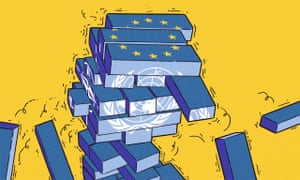The crippled state of Syria's economy risks weakening the remaining loyalist support for the government in Damascus.
The international involvement in the country's civil war will leave Damascus with few partners that it can trust to help with its reconstruction efforts.
Iran's investments in Syria will not yield immediate financial gains but will afford Tehran greater influence in the country.
Analysis
Six years of conflict in Syria have left its economy in tatters. Since 2010, the country's gross domestic product has shrunk by more than half. The war has devastated Syria's population, killing more than 440,000 people and driving some 6 million more out of the country, a loss that will cripple the country long after the fighting inevitably stops. An estimated 60 percent of Syria's population — what's left of it — is unemployed, and it's hard to say how many more Syrians are underemployed.
Though the government entered the new year at an advantage over its opposition, having just retaken the city of Aleppo, its financial decline has undermined its ability to exert control over the country. When the time finally comes to begin picking up the pieces, the government in Damascus will not be able to embark on the daunting task of reconstruction alone. Several countries have already begun extending their support to help rebuild the battered nation, some more strategically than others.




















